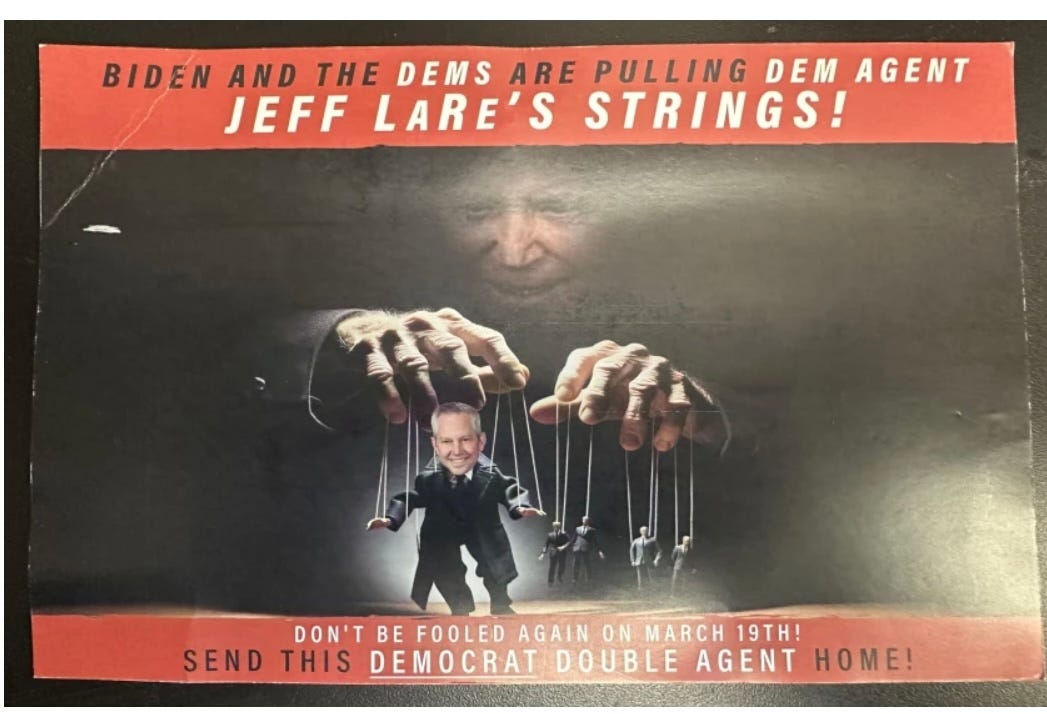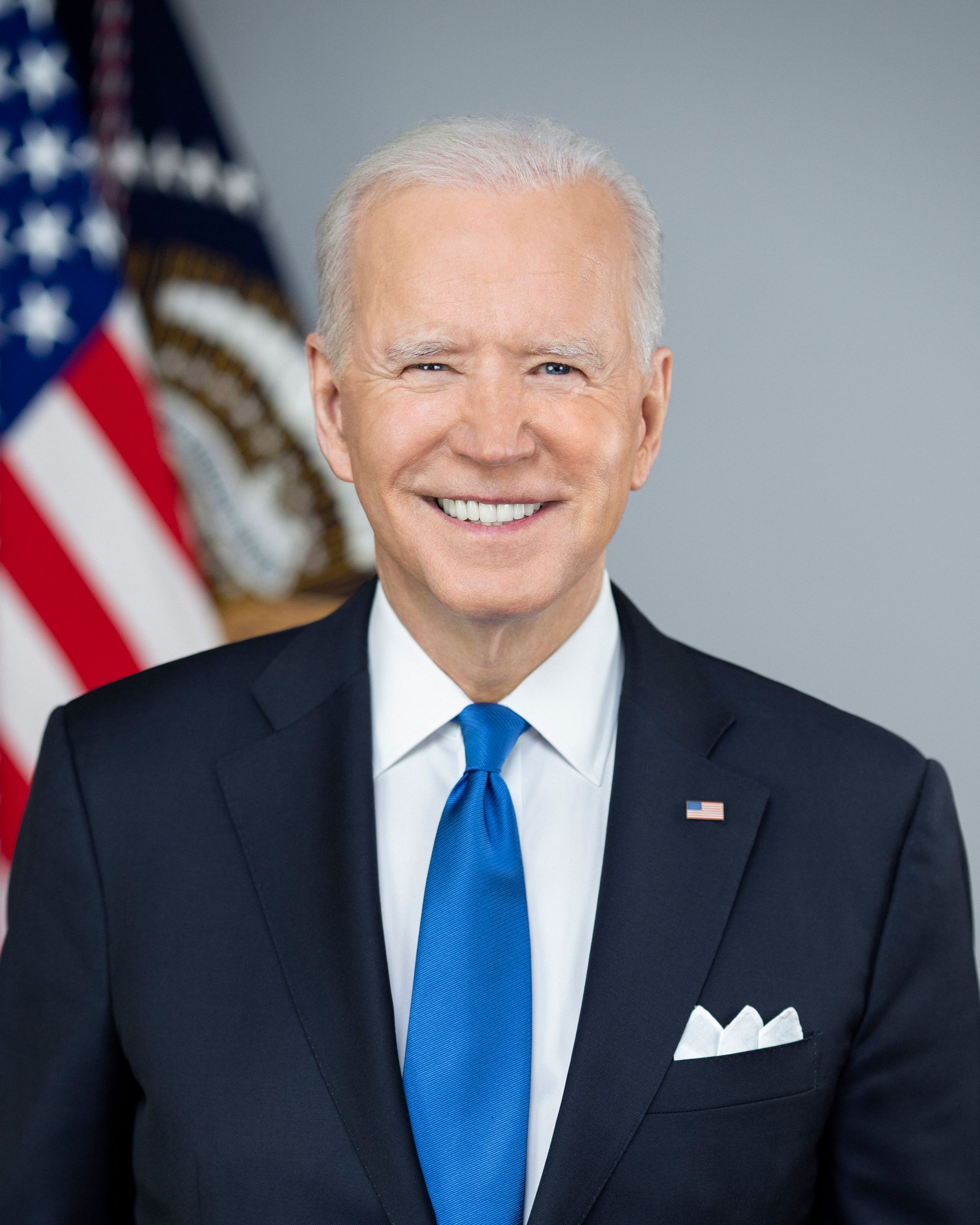*Read all of David's writing and watch his fantastic videos at Pepperspectives!
By David Pepper
The recent election cycle has been intense, downright fiery at times.
Millions upon millions of dollars invested.
Largely spent by dark money groups, backed by some of the wealthiest people in America..
Usually in the form of aggressive television attack ads against incumbents. Accusations of betrayal and left-wing conspiracies.
And under this onslaught, many of those targeted incumbents lost. Some long-time figures absolutely shellacked by newcomers.
“Poor Democrats,” I’m sure many of you are thinking—the targets of so much dark money vitriol.
What I’m describing above are primaries.
Republican primaries, which played out in an especially heated (and telling) way in Texas and Ohio.
And it was Republican officeholders who were the targets of those nasty attacks. And it was Republican officeholders who saw their careers upended by billionaires’ dark money and nasty, personal attacks.
In Texas, several dark money groups targeted Republican legislators who had stood up against the push for universal vouchers in Texas because they knew it would hurt the public schools in their rural districts.


And it all re-proved the broader point I’ve tried to make for a while now—that the Laboratories of Autocracy model of controlling states is not just about party. It’s not simply about Republicans maintaining power over Democrats in those states.
Of course, that’s part of it. Of course Republicans want to stay in the majority in as many states as possible. But in many states that would occur regardless—at least in most years. But still they gerrymander.
Why?
Because at this point, the goal is far deeper and more far-reaching than simply Republicans beating Democrats. It’s about favoring a certain type of Republican: the more extreme ones, the ones who eagerly use public power to do the bidding of certain big money and far-right ideological interests, the ones who go along with it all. On the flip side, it’s about purging any Republican who dares act independently of those interests. For even a moment. Or who dares work with the other side. Ever.
And through that purging, it’s about enforcing absolute discipline among all who remain, and all who run in the future. The message is clear: “If you dare stand up to us and what we want, you too will lose.”
Which means the entire system is really not about party at all. One of the two parties has simply become a vehicle. A means to an end.
And that end is an entirely different form of politics, and government, than what we think of as public service. It’s about the locking up of public power and public institutions by those narrow private interests who have the most to gain in a political world of no accountability—and whose interests run counter to the views and interests of the everyday public, which loses all power in that world of no accountability.
Among the most powerful tools to accomplish this are: 1) lopsided, gerrymandered districts and 2) dark money. The combination of the two allows narrow interests to unseat anyone who stands up to their corrupt brand of power-grabbing politics.
And when you watch closely (now and through history), that begins with purging the party in power of anyone who stands up to those interests. Those who show a hint of an independent streak are the the first walked off the plank. And gerrymandered districts make that plank a short and quick walk—because a primary challenge from the right in a lopsided district is such an easy race to run. Throw millions of dark money into the mix, and the challenger quickly becomes the favorite. It’s a cakewalk.
Over even a few years, the irony is that it’s these independent-minded Republicans (those from the party in power) who go extinct before Democrats ever will. Think about it: gerrymandering in red states only works because, through packing of voters, they are designed for Democrats to win a number of seats no matter what (even if their overall numbers are minimized). But any Republicans who think or act for themselves and for the best interests of their districts—the ones who dare stand up to the big money or the ideological extremists, like the big voucher backers in Texas? Any Republicans who shows any whiff of moderation? In gerrymandered states, facing lopsided districts and dark money—they’re the ones who go wholly extinct in a gerrymandered system.
Of course, when these same Republicans refuse to fix either dark money or gerrymandering, they are sharpening the tools of their own destruction.
All of this shows two things:
First, the overarching goal here goes way beyond rule by one party. It’s deeper—it’s control of government by a set of narrow interests (ideological and economic) that would never succeed in a world of fair districts and a representative democracy. It’s a toxic brew of anti-majoritarian oligarchy and extremism. And today’s GOP, dark money, and gerrymandered red states are the prime vehicles to achieve that goal.
Second, with large targets on their backs, Republicans who aren’t comfortable with this direction should be as eager as all other Americans to reform the broken elements of American politics. Especially now that, as we just saw in Texas and Ohio, deep-pocketed dark money groups will attack wayward Republicans with more firepower than they will all but a handful of Democrats.
The good news is that, as we saw with Ohio’s Issue 1 last August, when folks rally across party lines to protect democracy, it can work. In Ohio, the multi-partisan pro-democracy coalition that came together routed the other side. In the same way, voters and leaders from across party lines must continue to join together to end the scourge of both gerrymandering and dark money that in the end gives narrow interests control of government.
Because as Texas and Ohio just made clear, it’s not only those from one party who pay the price.











